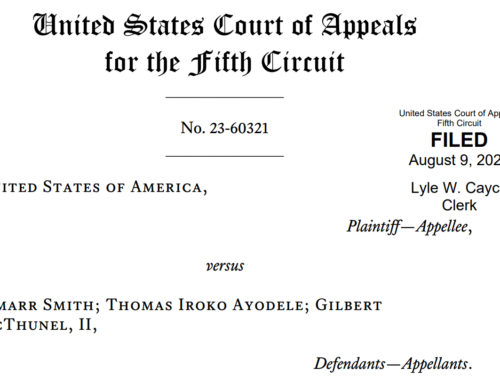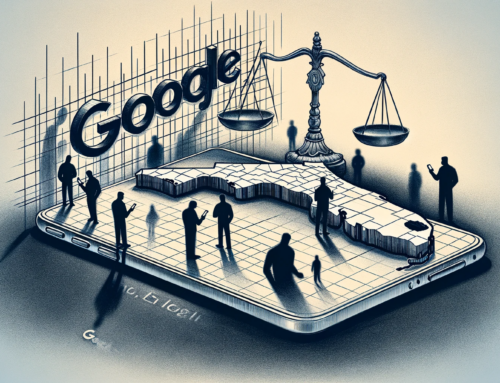Border Searches of Cell Phones Require a Warrant
Today, we’re going to delve into a recent court opinion that has significant implications for the Fourth Amendment and the privacy rights of individuals. The case in question is United States v. Smith, a decision from the Southern District of New York. This case is a fascinating exploration of the intersection between privacy rights, technology, and law enforcement practices at the border.
The Case at Hand
In United States v. Smith, the defendant, Jatiek Smith, was detained by Customs and Border Protection agents upon his return to Newark Airport from Jamaica. The agents forced Smith to turn over his cellphone and its password, then proceeded to manually review the phone and create an electronic copy of its contents – all without a search warrant. Weeks later, the government applied for and obtained a search warrant to review the electronic copy.
Smith argued that this search violated his Fourth Amendment rights, which protect against unreasonable searches and seizures. The court agreed that the search was a violation, but it did not suppress the evidence obtained from the search. The court invoked the “good faith” exception, arguing that the agents conducting the search had an objectively reasonable basis for believing that there was legal authority that authorized such a search.
The Fourth Amendment and Cell Phones
The court’s decision, in this case, is particularly interesting because it grapples with the application of the Fourth Amendment to the search of digital data on cell phones. The court referenced the Supreme Court’s decision in Riley v. California, which held that the vast quantities of sensitive data stored on cell phones necessitate different considerations than physical items a person might carry.
In Riley, the Supreme Court recognized that cell phones are not just another physical item, but rather, they contain a vast amount of personal and private information. This makes the search of a cell phone far more intrusive than the search of a person’s pockets or bag.
Distinguishing from Other Circuit Opinions
The judge in United States v. Smith had to distinguish this case from the Eighth Circuit’s opinion in United States v. Xiang and the Second Circuit’s opinion in United States v. Levy. In both Xiang and Levy, the courts upheld warrantless searches under certain circumstances. However, the judge in Smith argued that the search of a cell phone at the border, due to the vast amount of personal information it contains, requires a different standard.
The judge also referenced the Ninth Circuit’s opinion in United States v. Cano and the Fourth Circuit’s opinion in United States v. Aigbekaen to support his holding. These cases upheld the principle that the Fourth Amendment’s protections extend to digital data on cell phones, reinforcing the argument that a warrantless search of a cell phone is a significant intrusion of privacy.
The Current State of the Law
The law surrounding the Fourth Amendment’s application to cell phone searches is currently in a state of flux, with different circuits interpreting the law in different ways. Some circuits have upheld warrantless searches of cell phones under certain circumstances, while others have held that a warrant is always required due to the significant privacy interests at stake.
Ultimately, it will be up to the U.S. Supreme Court to resolve this issue and provide a clear rule for law enforcement to follow. Until then, individuals and law enforcement agencies will have to navigate a complex and often contradictory legal landscape.
Conclusion
United States v. Smith is a fascinating case that highlights the challenges courts face in applying the Fourth Amendment to modern technology. As technology continues to evolve and become an even more integral part of our lives, these issues will only become more complex and important. As a criminal defense lawyer, it’s crucial to stay informed about these developments and understand how they might affect your rights or the rights of your clients.
The Smith case is a reminder that the Fourth Amendment’s protections are not absolute and can be subject to interpretation and exception. It also underscores the importance of understanding the nuances of the law and how it applies to different situations.
The court’s decision in Smith, while controversial, is a reflection of the ongoing struggle to balance the need for effective law enforcement with the fundamental right to privacy. It’s a reminder that the law is not static but evolves with society and technology.
As we await the Supreme Court’s ultimate decision on this matter, it’s important to stay informed and vigilant about our rights. Remember, knowledge is power. The more you understand about the law, the better equipped you’ll be to enforce your rights.
Contact an Experienced Criminal Defense Lawyer
In the meantime, if you or someone you know is facing a similar situation, it’s essential to consult with a knowledgeable criminal defense attorney who understands these issues and can provide effective representation. Remember, the law is complex, and having an experienced advocate on your side can make all the difference.
CALL US for a FREE CONFIDENTIAL CONSULTATION at (305) 538-4545, or take a moment to fill out our secure intake form.* The additional information you provide will greatly assist us in responding to your inquiry.
*Due to the large number of people who contact our law office requesting our assistance, it is strongly suggested that you take the time to provide us with specific details regarding your case by filling out our confidential and secure intake form. The additional details you provide will greatly assist us in responding to your inquiry promptly and appropriately.
ALWAYS INVESTIGATE A CRIMINAL DEFENSE ATTORNEY’S QUALIFICATIONS AND EXPERIENCE BEFORE MAKING A DECISION ON HIRING A LAWYER FOR YOUR CRIMINAL CASE IN MIAMI-DADE COUNTY








